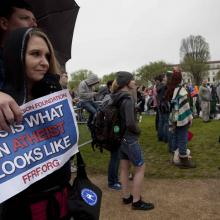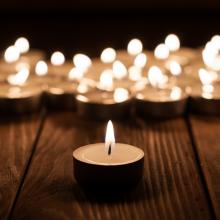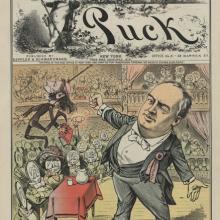humanism
“Dutch values are based on Christianity, on Judaism, on humanism. Islam and freedom are not compatible,” populist politician Geert Wilders, 53, said in an interview with USA Today. “You see it in almost every country where it dominates. There is a total lack of freedom, civil society, rule of law, middle class; journalists, gays, apostates — they are all in trouble in those places. And we import it.”

Image via Tyrone Turner / RNS
Not all Americans pray. So the American Humanist Association, among the largest national advocacy groups of nonbelievers and other secularists, wants the first Thursday in May to be recognized by Congress as a National Day of Reason. But that day is already designated as the National Day of Prayer, with a 65-year history of support from Congress, state and local governments and every sitting president since its inception in 1952.

Photo via Bychykhin Olexandr / Shutterstock
As a social concept, humanism isn’t a threat to religion, nor actively working against it — humanism is simply a growing alternative in terms of spiritualism and rationalism. These six burial practices of humanist funerals can help us understand why.
It’s a common ritual in religious observances this time of year: Light a candle against the darkness, the winter, the uncertainty of the world.
But a newly minted observance called Secular Solstice adds its own spin. Those lighting the candles are nonbelievers — humanists, atheists, skeptics, and other freethinkers — and the candles represent no unseen divinity, but the actions and intentions of those who light them to make the world a better place.
“We live in a world beyond the reach of God,” one of the service’s many readers said as 130 or so people gathered huddled over white candles in glass votives at Humanist Hall — a purple-painted house near downtown Oakland. “It is a hard universe. If we want to build a softer universe we will have to do it ourselves.” As a choir broke into “Here Comes the Sun,” an inscription painted on the wall beamed down upon the gathered, “The world is my country, to do good is my religion.”
Secular Solstice is the handiwork of Raymond Arnold, a 28-year-old Catholic-turned-humanist who wanted to do something meaningful with friends in mid-December. He put together the first Secular Solstice — a two-hour blend of music and readings by candlelight — last year in New York, where he works as a web developer.
He struck a nerve — the first Secular Solstice was packed, and this year there will be Secular Solstices in New York, Seattle, San Diego, and Leipzig, Germany.
Absolutely, say organizers of a first-of-its-kind conference to be held by atheists of color in Los Angeles this weekend. And, they add, it’s about time those issues got some attention.
Called “Moving Social Justice,” the conference will tackle topics beyond the usual atheist conference fare of confronting religious believers and promoting science education. Instead, organizers hope to examine issues of special interest to nonwhite atheists, especially the ills rooted in economic and social inequality.
“Atheism is not a monolithic, monochromatic movement,” said Sikivu Hutchinson, an atheist activist, author and founder of Los Angeles’ Black Skeptics, one member of a coalition of black atheist and humanist groups staging the conference.
“By addressing issues that are culturally and politically relevant to communities of color, we are addressing a range of things that are not typically addressed within the mainstream atheist movement.”
The conference is unusual for an atheist gathering in another important way — its lineup of speakers includes members of the religious community. Hutchinson, often an outspoken critic of religion, described the conference as “effectively an interfaith conference.”
A new coalition of atheists, humanists and other nonreligious groups is taking a page from the gay rights movement and encouraging people to admit they are “openly secular.”
The coalition — unprecedented in its scope — is broadening a trend of reaching out to religious people and religious groups by making the secular label a catchall for people who are not religious.
“We wanted to rise above who is an atheist, who is an agnostic, who is a humanist, who is a secular Jew,” said Todd Stiefel, founder of the Stiefel Freethought Foundation and a main force behind the coalition. “This needed to be about something everyone could rally behind so we intentionally used the word secular because it was one thing we could all agree on.”
The campaign, “Openly Secular: Opening Minds, Changing Hearts,” was unveiled at the 65th annual gathering of the Religion Newswriters Association here on Sept. 20. It includes a website, resources for families, employers and clergy, and a YouTube channel featuring both prominent and rank-and-file nonbelievers announcing their names followed by the declaration, “I am openly secular.”
Sit down and shut up.
That’s the message of a campaign launched Sept. 8 by the American Humanist Association, asking Americans to refrain from standing and reciting the Pledge of Allegiance until Congress removes the phrase “under God.”
The 29,000-member humanist activist group, which also advocates on First Amendment issues, holds that the phrase “under God” is an unconstitutional establishment of religion.
“Until the Pledge is restored to its inclusive version, we can take it upon ourselves to refuse to participate in what’s become a discriminatory exercise,” the campaign’s website, Don’t Say the Pledge, says. It also describes the current pledge as “twisted, with divisive religious language that implies true patriots must be believers.”
The American Humanist Association said Sept. 4 that an airman at Nevada’s Creech Air Force Base who crossed out “so help me God” in the oath the Air Force requires servicemen and women to sign was told in August he must sign it as is or leave the Air Force.
The AHA’s Appignani Humanist Legal Center sent a letter to the Air Force on the airman’s behalf demanding he be allowed to sign a secular version of the oath. The U.S. Constitution allows freedom of religious beliefs and prohibits religious tests for holding public office or public trust, the letter states.
The airman’s name is being withheld by AHA.
“The Supreme Court has held on a number of occasions that it is unconstitutional to force anyone to take an oath that affirms the existence of a supreme being,” said Monica Miller, an attorney for AHA and author of the letter. “Numerous federal courts have specifically held that forcing an atheist to swear to God violates the Free Exercise Clause as well as the Establishment Clause.”
If interfaith marriages are supposedly doomed, Dale McGowan’s should have been toe-tagged from the start.
He’s a committed atheist; his wife comes from a line of Southern Baptist preachers. Yet 23 years and three kids later, they are still happily married.
“The key is to talk about your values,” McGowan said from his home in Atlanta. “A lot of time we mix up the words ‘values’ and ‘beliefs.’ Beliefs are what you think is true about the universe. Is there a God? Where do we go when we die? But values are what you believe are important and good. When you get couples talking about values they find out they share a tremendous amount, even if they don’t share beliefs.”
That’s what McGowan and his wife, Becca, did. While she believed in one God, she did not believe salvation could be had only through belief in Jesus. And he agreed that he could go to church with her — and did, for many years, with their children.
Many viewers may be hoping that Cosmos: A Spacetime Odyssey lives up to the original series created by astronomer Carl Sagan 35 years ago.
But no one will watch the program, airing Sunday on Fox, with greater anticipation than nonbelievers — atheists, agnostics, humanists, and other “nones.”
Among this group, many credit Sagan and the original Cosmos with instilling in them skepticism of the supernatural and a sense of wonder about the universe. Both, they say, encouraged their rejection of institutional religion.
Humanists are especially eager. They claim Sagan as their own, and see in the Cosmos series — a multipart journey to the outer reaches of our universe — and in his dozen books a vibrant strain of their own philosophy. That philosophy favors reason over religion and holds human beings as both good and responsible for the Earth’s plight.
Meet Robert Ingersoll, the most famous American atheist you’ve probably never heard of.
A self-educated attorney and atheist, Ingersoll was a Victorian-era rock star who could pack theaters from Texas to New York with people who came from hundreds of miles around to hear “The Great Agnostic” lecture against religion.
He was courted by politicians, his likeness was carved in stone, and when he died in 1899, newspapers around the country carried his obituary. A Civil War veteran, he was buried in Arlington National Cemetery.
DUBLIN — Patricia Wojnar left a 32-year career in interior design to pursue a degree that wasn’t in demand: a master’s in bereavement studies.
Having seen four family members die early, she wanted to understand how to adapt.
As it turned out, the degree perfectly prepared her to enter one of Ireland’s emerging professions.
Wojnar is now a registered civil celebrant, presiding over funerals and weddings for people who refuse to associate with Ireland’s scandal-tarred Roman Catholic Church. She’s not alone; many newly minted civil celebrants are starting their own businesses as part of Ireland’s “post-Catholic” economy.
Although many observers have noted the impact of secularization and child abuse scandals on church membership and finances, only now are the Irish seeing the cultural and socioeconomic reverberations. These include a class of people willing to observe life’s most significant milestones outside the church.








